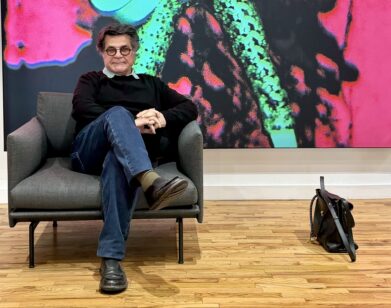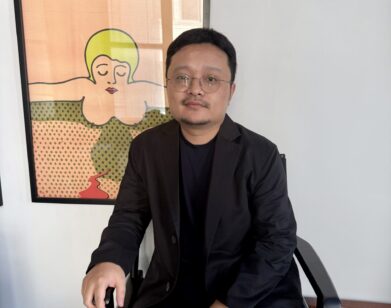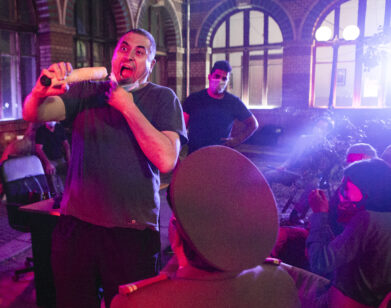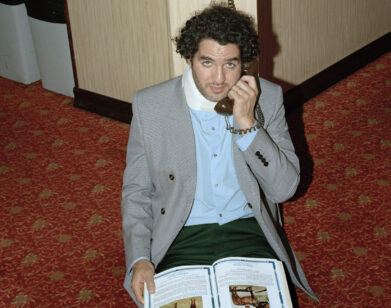Jawad Rhalibâ??s Outlier
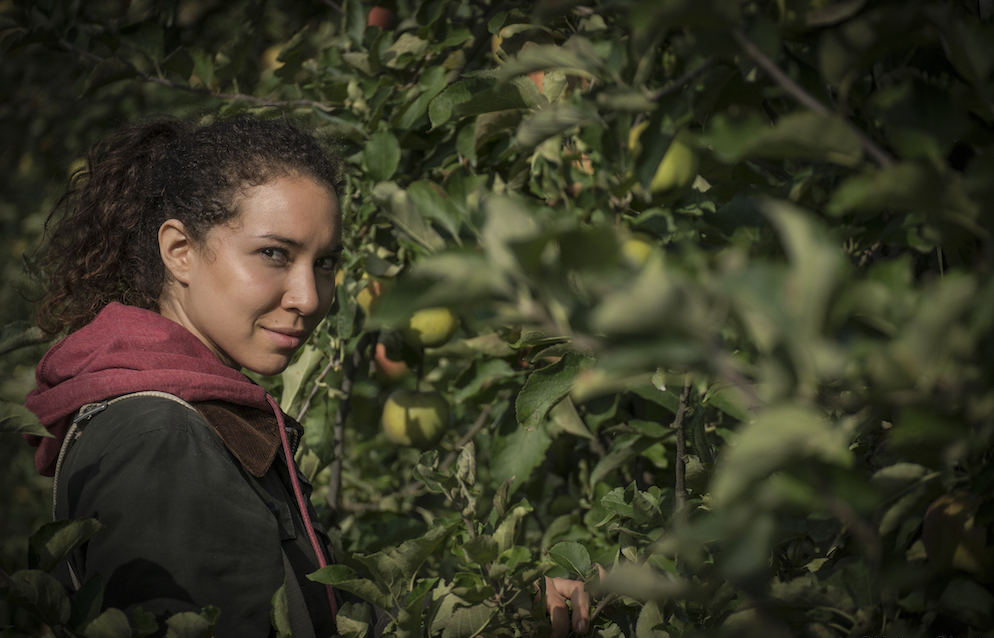
SOFIIA MANOUSHA AS LAILA IN JAWAD RHALIB’S REBELLIOUS GIRL. PHOTO BY MARIANNE GRIMONT.
Born in Morocco and based in Belgium, filmmaker Jawad Rhalib has spent his career deconstructing sociopolitical issues in both documentary and fiction formats. His latest film, Rebellious Girl, shown in competition at the Marrakech International Film Festival earlier this month, spins the dismal reality of the exploitation of migrant workers in Europe into a tale of victory and moral strength. Laila (Sofiia Manousha), a Moroccan political activist who takes on a gig as a seasonal fruit harvester in Belgium to support her family back home, soon becomes the mouthpiece of reform against the practices of a deceitful farmer. Interview caught up with Rhalib at the festival.
COLLEEN KELSEY: Some of your films have been censored in Morocco before—how did it feel to be selected for this festival?
JAWAD RHALIB: It was very important for us to be here in Marrakech, but I wasn’t expecting to be selected, because the film started with hard things about the revolution and with the [Moroccan rock] group Hoba Hoba Spirit. With Hoba Hoba Spirit, we cannot see them on the TV, for example. They [the festival] selected the film, and that makes me say that Morocco is about change and peace. I have another fiction film [set] in Belgium called 7, rue de la Folie, and it’s about Islamism. We have been in a lot of festivals with this film, and in Belgium there are some theaters that didn’t want to show the film because they were afraid. It was just crazy to be censored like this in Belgium, you know?
KELSEY: I have to say that at the start of Rebellious Girl, I didn’t expect it to be such a victory for Laila, in the end. You’ve made documentary films as well, and this subject could also lend itself to a documentary film. So, what was the process of deciding to do this one as a fictional feature?
RHALIB: It’s a fiction, but it’s a reality too.
KELSEY: Right, and a very recent reality, a current reality.
RHALIB: Yes, but, when you say [in] some countries, people like Laila can’t succeed to have rights, I agree, but not in Belgium. We have rights. I was just about to be honest, and to show that there are bad people and good people, everyone has his problems because of Europe, because of European politics, and the things that are going on with Russia. For me, the bad guy is Europe. One of my documentaries was called El Ejido, la loi du profit. It was about workers from Africa and Morocco working in South Spain for tomatoes, and Europe’s closed eyes about the exploitation. I’ve done The Turtles’ Song, about the Arab Spring and Morocco. I met some young people, politically very strong, and they wanted to have a change here. And things are changing, but it’s just like the turtle, slowly.
KELSEY: Tell me a bit about developing Laila’s character.
RHALIB: Laila is just the image of other girls that I met during my shoot of my film, The Turtles’ Song. In The Turtles’ Song, you can see girls, just in front [of demonstrations] of all of the people, and they are shouting. It was the same thing in Egypt, and Tunisia, in Morocco, everywhere. Now we can see that young girls, here in Morocco, they are doing things, they are working. It was very important to have this character and to make her successful at the end. It’s hope that we can change things.
KELSEY: And on the same note, with a male protagonist, it would have been a very different movie.
RHALIB: Yes. It’s just as the other people know in this film, they accepted their situation and they were just working. The girl that comes from Burkina Faso, she has to send money for her family, and it is the same thing for [the] Polish people and all the people there. But, when Laila arrived there and she saw that things are wrong, she started to move everyone. And that started with [Thibaut] the male character.
KELSEY: Each film of yours explores a form of social injustice in a topical manner. Do you immediately latch onto an idea? Do you research? How do you determine if a subject is a better fit for a narrative feature versus a documentary?
RHALIB: I’ve done my research with my documentaries, you know? It was the occasion to make the research, and to be in the heart of the action. In El Ejido, la loi du profit, I stayed there, well, not three years, but I did come back from Belgium to Spain to shoot with these people and to talk to them and to see them and to see what the law says about this problem. It was the same thing with The Turtles’ Song, three years shooting, from the beginning to the end of the movement here in Morocco. Meanwhile, I was writing the [Rebellious Girl] and it took me four years to write it. It’s not a documentary—[it goes] straight to the problem and to the solution of the problem. We are now preparing another one that we will just start looking for financial support; it’s about jihadism and about a woman that will be in front of jihadists, in a little village. It’s a big production. It’s about oppression and the things that are happening today over in Europe and in the United States with terrorism and things like that. We will shoot in May.


